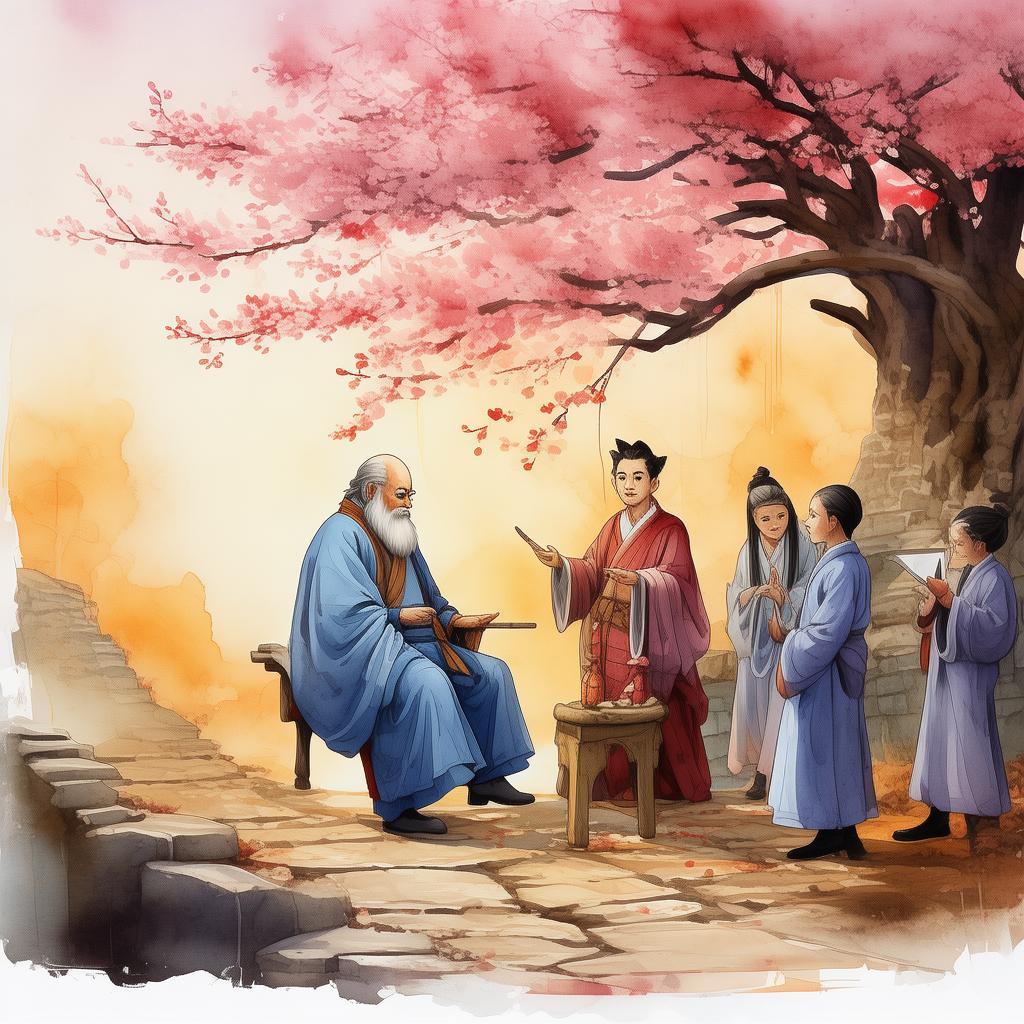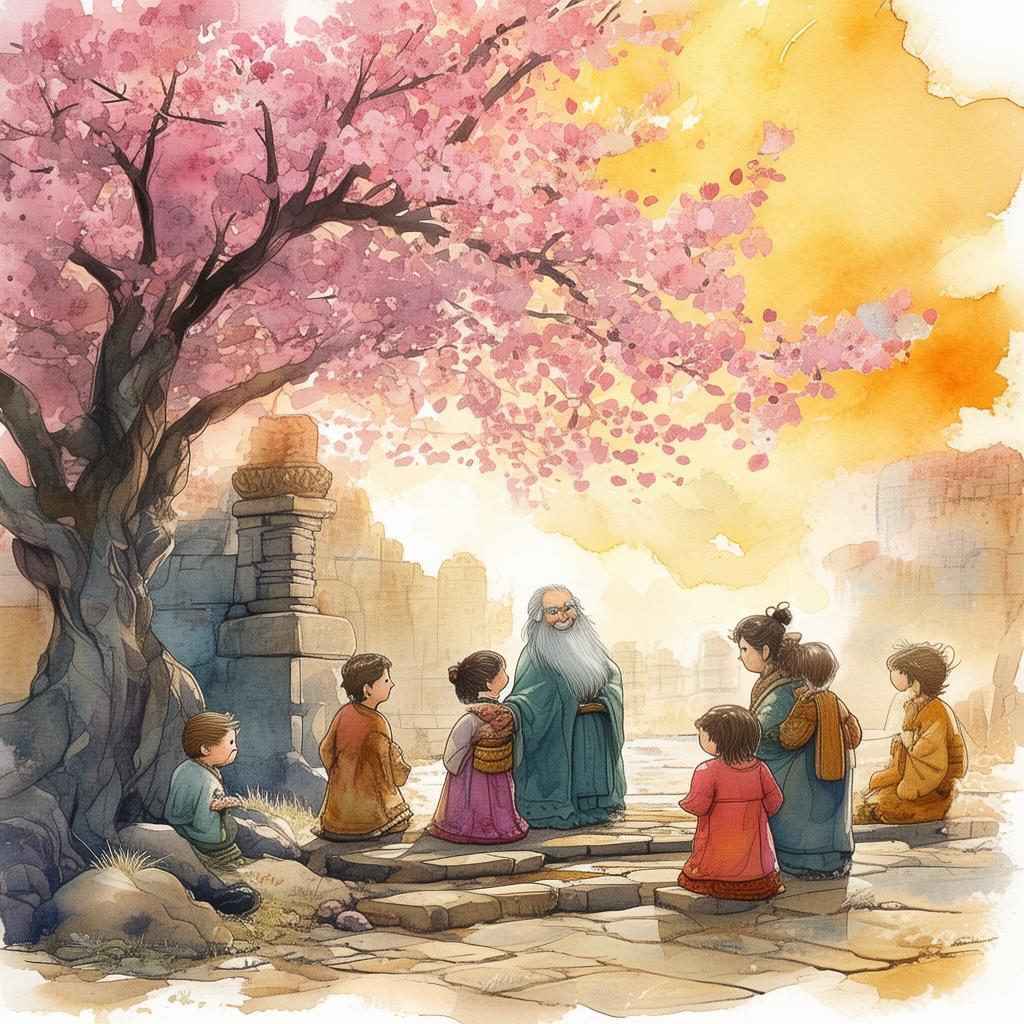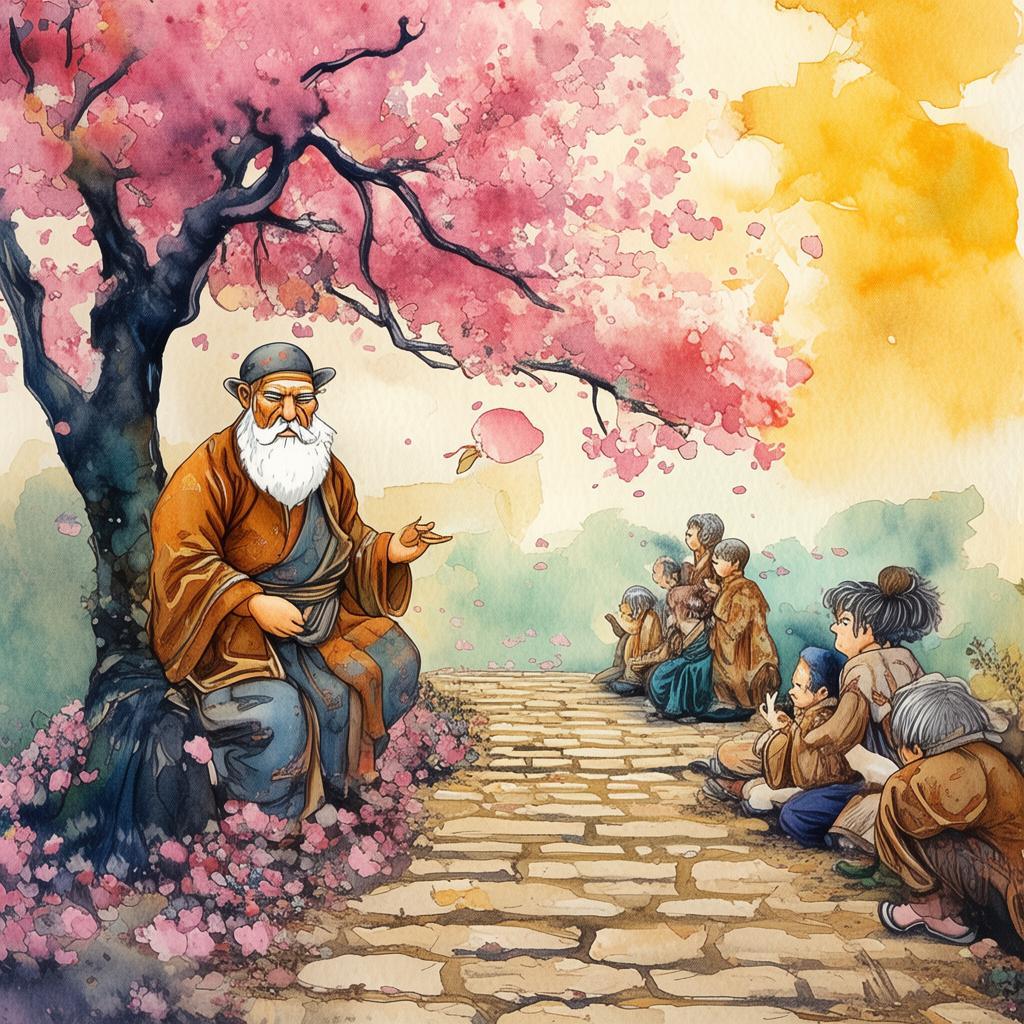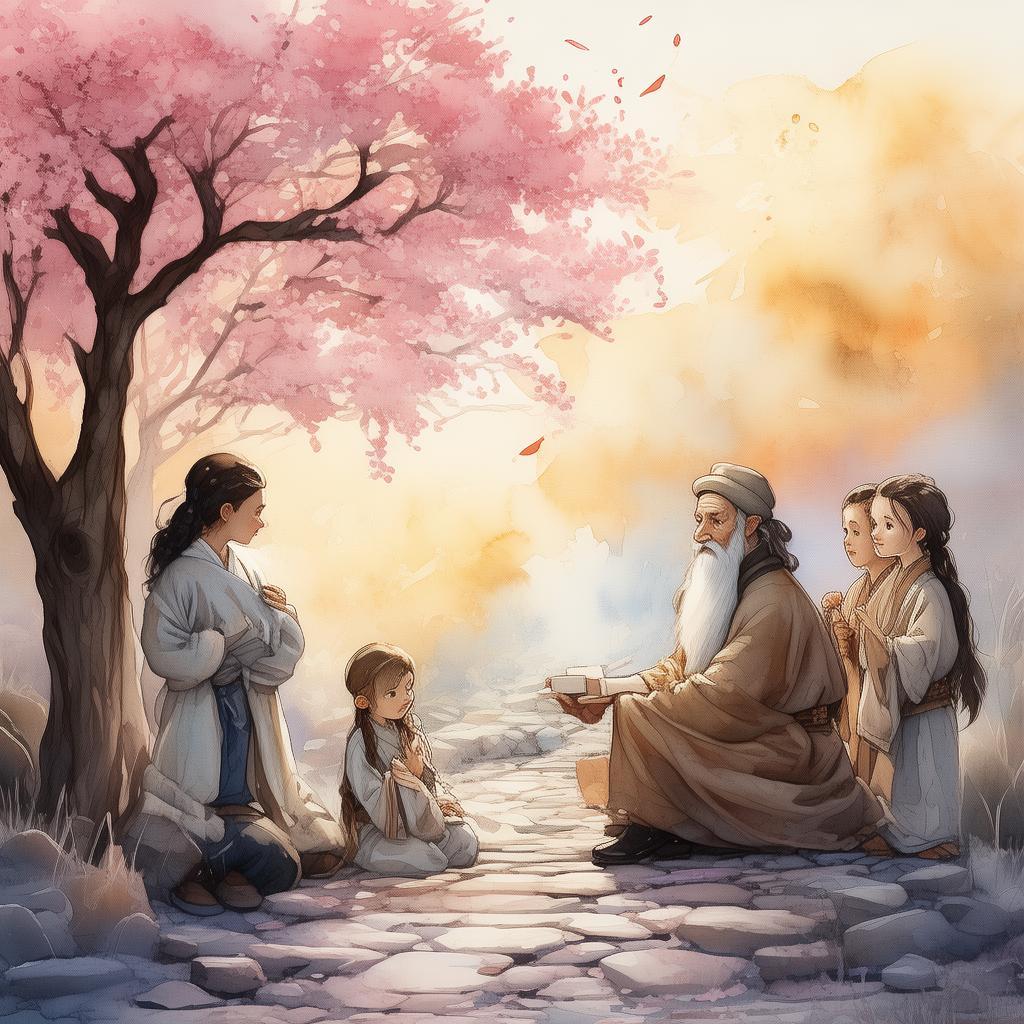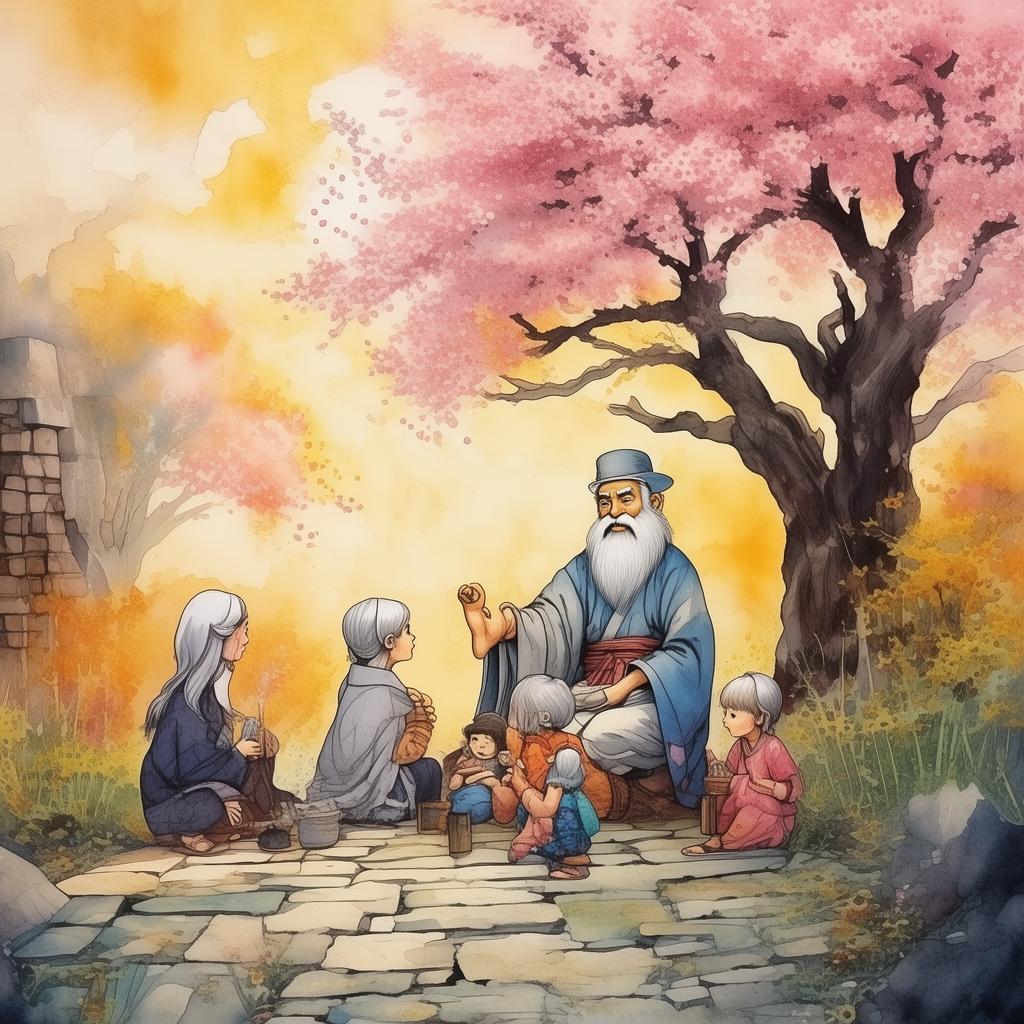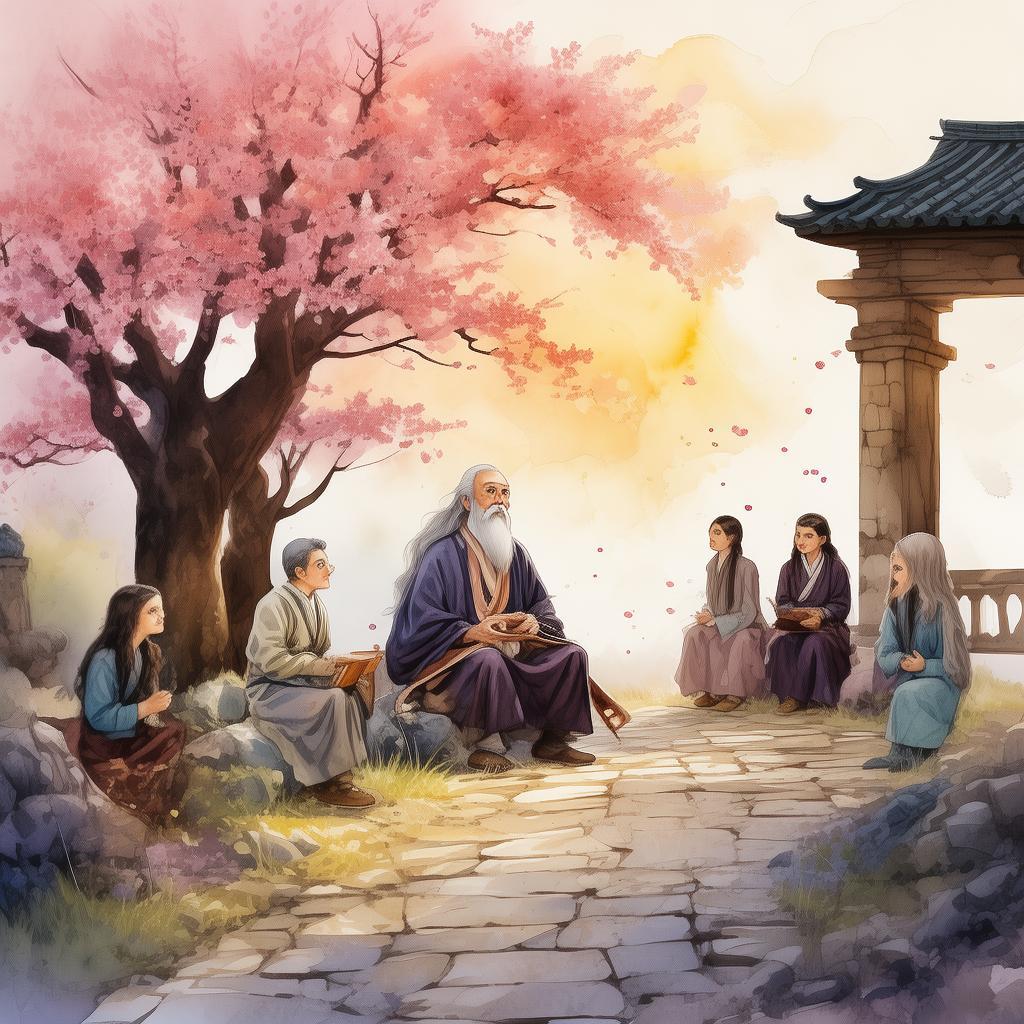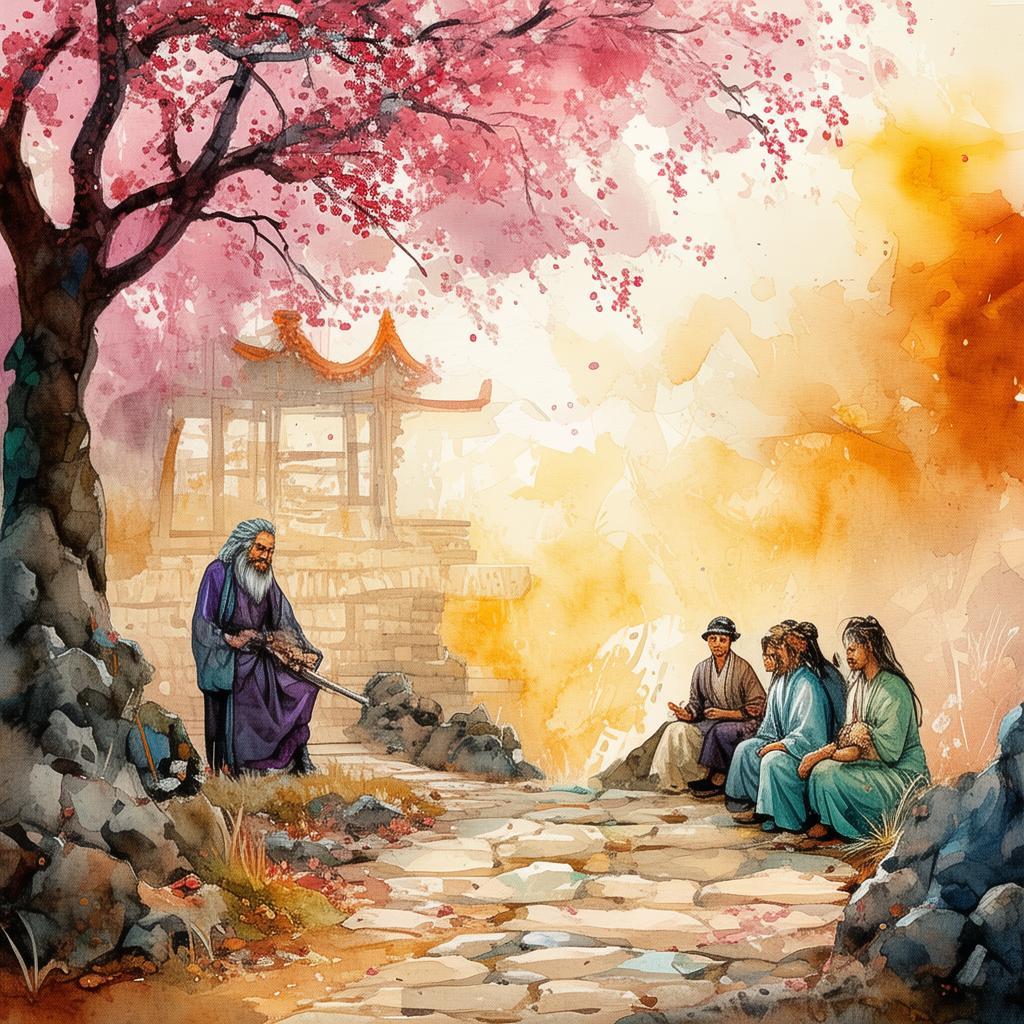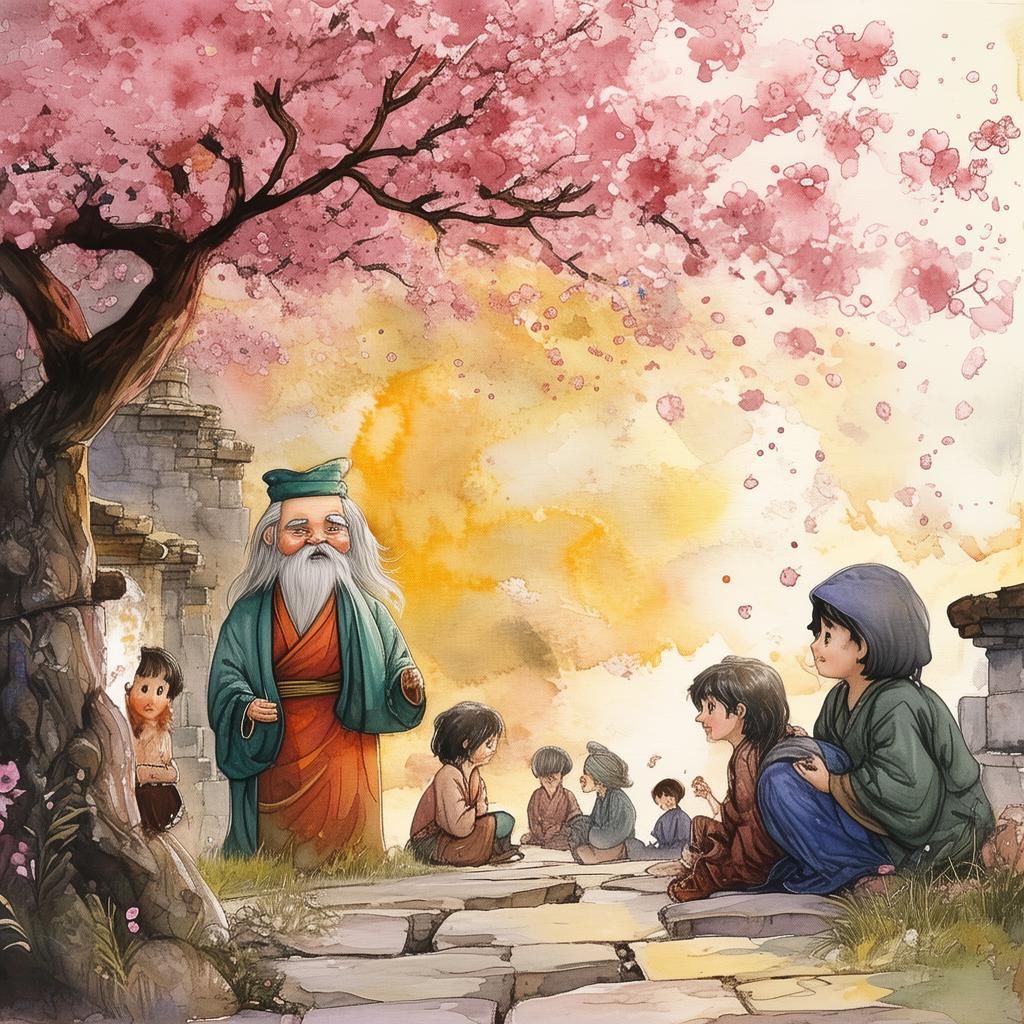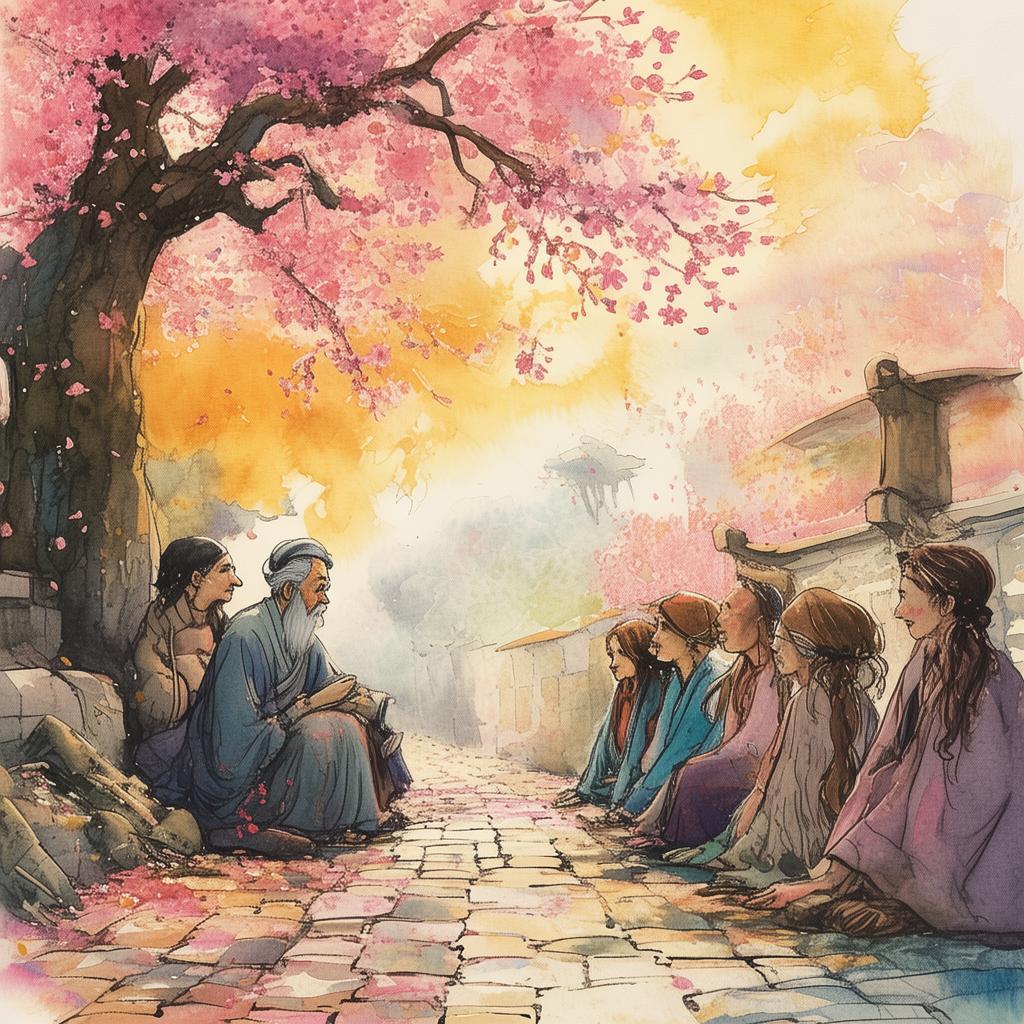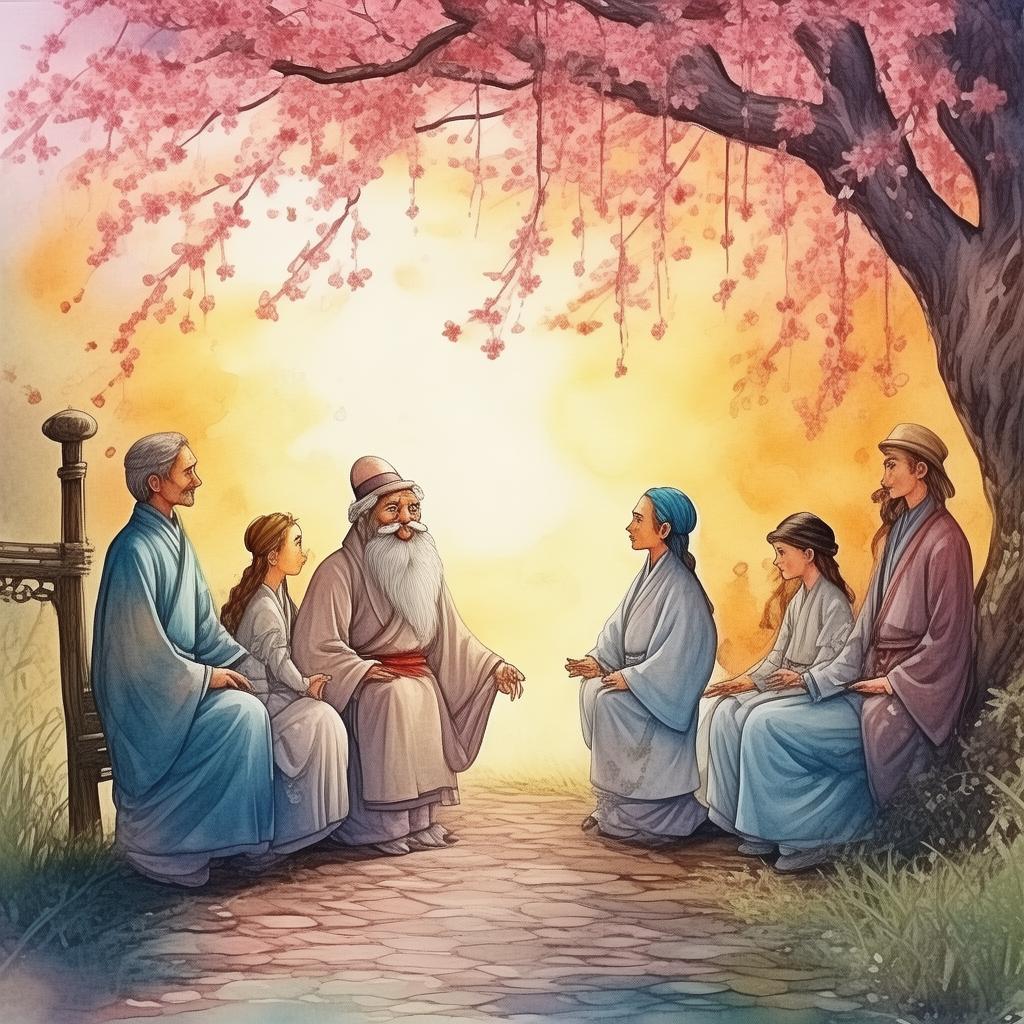Seven Sages and the Labyrinth of Shadows
In the heart of the ancient kingdom of Aetheria, where the mountains kissed the clouds and the rivers whispered secrets of the ages, there lay a labyrinth known as the Shadow's Den. This labyrinth was said to be the final resting place of ancient wisdom, a place where the sages of old sought enlightenment, and the secrets of the cosmos were whispered in the wind.
The seven sages, each a beacon of knowledge and wisdom, were chosen by fate to undertake the perilous quest. They were:
- Master Li, the Master of Iron Logic.
- Sage Wu, the keeper of the ancient scrolls.
- Lady Jing, the seer of dreams.
- Monk Chan, the serene meditator.
- Scholar Qin, the wordsmith of profound truths.
- Lady Feng, the mystic of the moonlit nights.
- and the young but ambitious Master Hua, who sought the wisdom of the ancients to change the world.
The legend spoke of a labyrinth where shadows were more real than the stones upon which they danced. Each sage was to face a moral dilemma, a test of their wisdom and integrity, and the path forward was as elusive as the wind. They were told that only one could emerge with the ancient wisdom, and that person would become the keeper of Aetheria's fate.
As the seven sages stepped into the labyrinth, the path before them was a tapestry of shadows and light. They moved through the twisting corridors, the walls echoing with the whispers of the ages. They encountered riddles and puzzles, each one a step closer to the heart of the labyrinth, but none more daunting than the first.
Master Li, the Master of Iron Logic, was faced with a choice: to save the life of an innocent, or to uphold the law. The innocent man was guilty of a crime, but his sentence was unjust. Master Li pondered the dilemma, the logic of his mind clashing with the morality of his heart. In the end, he chose to save the man, understanding that sometimes the heart must guide the mind.
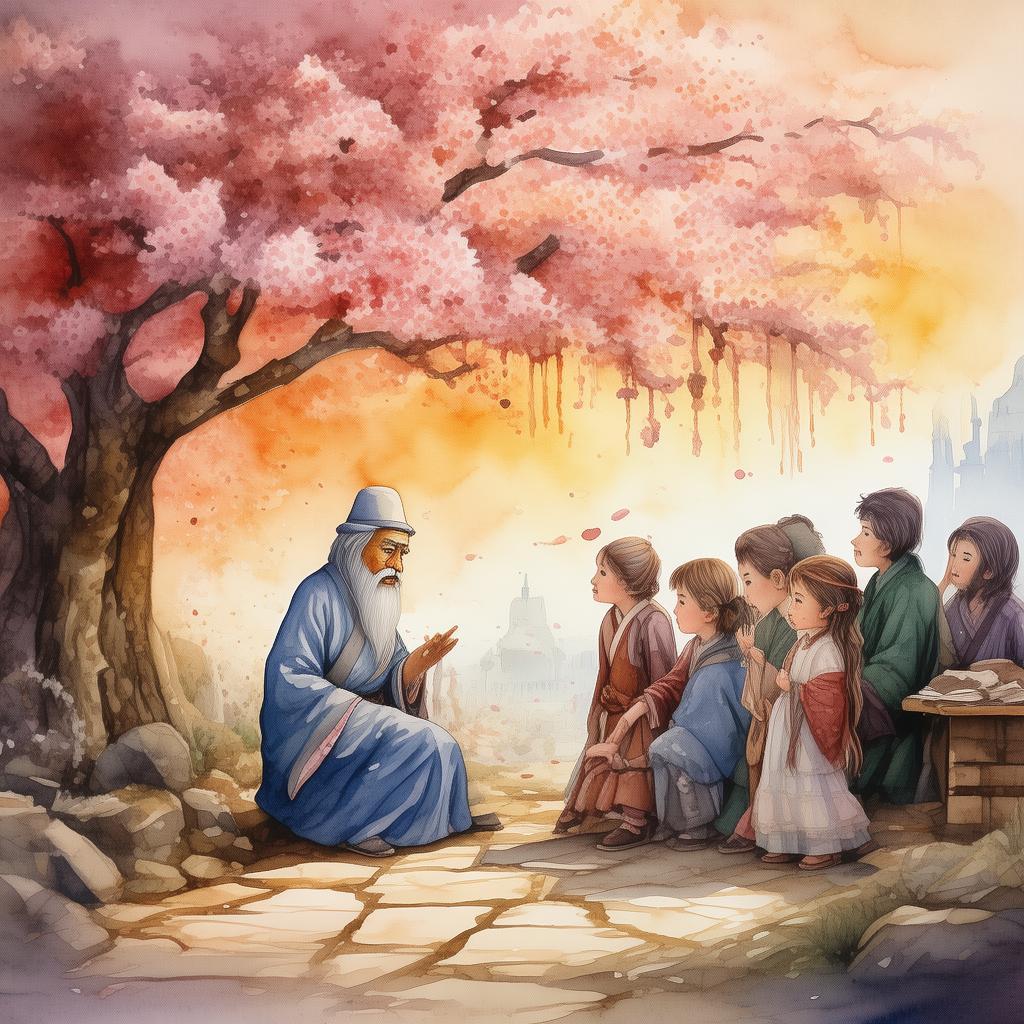
Sage Wu, the keeper of the ancient scrolls, found himself in a room filled with scrolls, each one containing a piece of the ancient wisdom. However, to read the scrolls, he must choose between two truths: one that would benefit the many, and one that would bring peace to the few. After much contemplation, he chose the truth that would bring peace, understanding that harmony was more valuable than power.
Lady Jing, the seer of dreams, was taken to a room where she saw visions of the past, present, and future. She was to choose between the wisdom of the past, which would ensure the survival of the kingdom, or the wisdom of the future, which would lead to prosperity. Lady Jing chose the wisdom of the future, understanding that progress was more important than preservation.
Monk Chan, the serene meditator, found himself in a room where he could hear the thoughts of the living and the dead. He was to choose between the voices of the living, who needed his guidance, or the silent whispers of the departed, who had found peace. Monk Chan chose the living, understanding that the present needed his wisdom more than the past.
Scholar Qin, the wordsmith of profound truths, was confronted with a choice: to write the truth, which would anger the king and risk his own life, or to write lies, which would keep the peace but at the cost of truth. Qin chose the truth, understanding that the world needed light, even if it meant facing the shadows.
Lady Feng, the mystic of the moonlit nights, was taken to a room where the moonlight was blocked by shadows. She was to choose between the light of truth, which would expose the darkness, or the darkness itself, which would protect the innocent. Lady Feng chose the light, understanding that darkness was only a temporary shield.
Lastly, Master Hua, the young and ambitious sage, was faced with a choice: to follow the path of wisdom, which would lead to enlightenment and possibly his own demise, or to seek power, which would lead to control and possibly the kingdom's downfall. Master Hua chose the path of wisdom, understanding that true power lay in selflessness and knowledge.
As they moved through the labyrinth, the sages encountered more challenges, each testing their resolve and understanding. They faced trials of courage, compassion, and self-discovery. In the end, it was Master Hua who emerged from the labyrinth with the ancient wisdom, having faced and overcome his own moral dilemmas.
The ancient wisdom was not a single piece of knowledge, but a collection of insights, a tapestry woven from the trials of the sages. Master Hua returned to the kingdom, not as the keeper of secrets, but as the keeper of wisdom, understanding that true wisdom is not about possessing knowledge, but about using it for the greater good.
The story of the seven sages and the labyrinth of shadows spread far and wide, inspiring generations to come. It was a tale of moral dilemmas, of the clash between logic and emotion, and of the journey toward enlightenment. And so, the wisdom of the labyrinth continued to live on, a reminder that the soul of wisdom is tested in the shadows of our own hearts.
✨ Original Statement ✨
All articles published on this website (including but not limited to text, images, videos, and other content) are original or authorized for reposting and are protected by relevant laws. Without the explicit written permission of this website, no individual or organization may copy, modify, repost, or use the content for commercial purposes.
If you need to quote or cooperate, please contact this site for authorization. We reserve the right to pursue legal responsibility for any unauthorized use.
Hereby declared.
